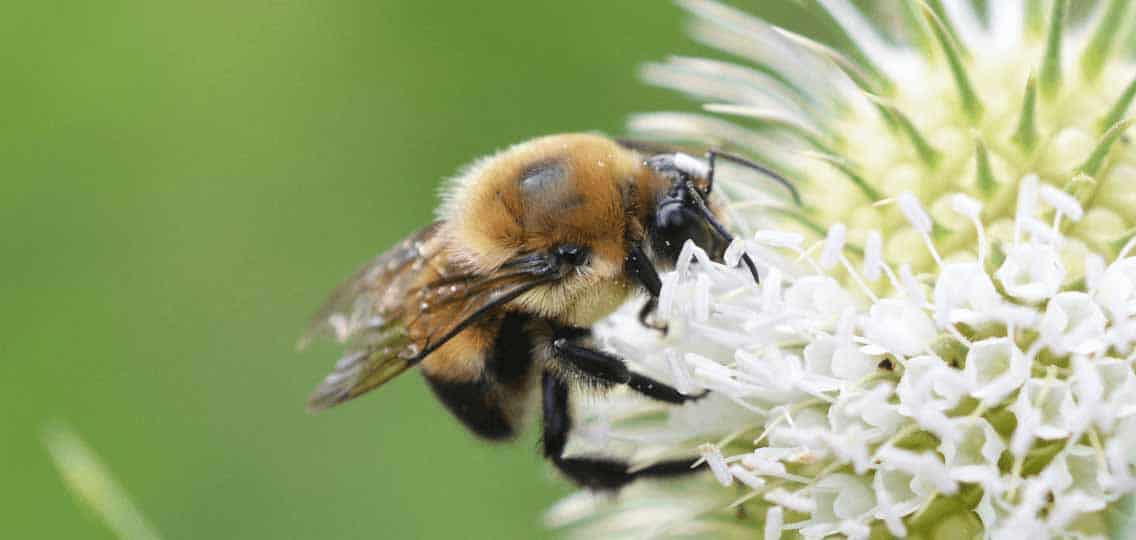TORONTO – A Federal Court judge has ruled that a case to protect pollinators from neonicotinoid pesticides must be heard before the courts.
Ecojustice lawyers on behalf of their clients at Ontario Nature, Wilderness Committee, David Suzuki Foundation and Friends of the Earth Canada successfully fended off four motions to dismiss their case about the Pest Management Regulatory Agency’s (PMRA) continued registrations of neonicotinoid (neonic) pesticides without the scientific information necessary to determine the pesticides’ risks to pollinators.
In her decision, Federal Court Case Management Judge Mandy Aylen, said that the case raises issues that must be heard. In rejecting arguments from the federal government and three pesticide companies she noted that ongoing PMRA science reviews “will not address the lawfulness of the PMRA’s conduct” and that “there may be a public interest in the Court’s consideration of whether the PMRA has acted in an unlawful manner,” regardless of how those reviews play out.
“We’re happy that CMJ Aylen so quickly concluded that our clients’ challenge to the PMRA’s lax practice warrants a full hearing, and that she completely disagreed that there is a fatal flaw in the case,” said Julia Croome, Ecojustice lawyer. “We’ll be working as quickly as possible to have our arguments heard in full because these are important issues that need to be determined by the court,” Croome said.
“Neonicotinoid pesticides have been repeatedly approved for use in Canada without properly considering the science, and the effects neonics have on pollinators, for too long,” said Eric Reder, Manitoba Campaign Director of Wilderness Committee.
Ecojustice lawyers Julia Croome and Charles Hatt presented their arguments against nine lawyers representing the Attorney General of Canada and Federal Health Minister, as well as pesticide companies Bayer CropScience, Sumitomo Chemical Company / Valent Canada and Syngenta Canada. They argued that the case could set an important precedent about the regulation of pesticides in Canada and deserves to be heard.
“We’ve had to fight this move by the federal government and pesticide industry to kill our case but now we’ve won our day in court. We must ensure that lax regulation of pesticides — as we’ve seen with neonics over the last decade — never happens again,” said Beatrice Olivastri, CEO of Friends of the Earth Canada.
“Neonicotinoids impair bees’ resistance to disease as well as their ability to forage and reproduce. With the emerging science, it is concerning that neonics are still approved for widespread use in Canada,” said Dr. Anne Bell, Ontario Nature.
Prior to the hearing, two significant scientific studies were released, detailing the effects of neonics on pollinators. The world’s largest study on neonics, published in Science journal showed widespread evidence of population decline and shortened lifespans in domesticated and wild bees populations exposed to neonics. A separate study conducted in Canada discovered that prolonged exposure to neonicotinoids affects honey-bee health in corn-growing regions. In the same week, the science continued to mount — a new study cropped up showing that neonicotinoids might be responsible for a severe decline in B.C. hummingbirds.
“It’s our intention to make sure that the Pest Management Regulatory Agency upholds its legal responsibilities as a regulator. There cannot be a sound decision without sound science,” Croome said.
About:
Neonics are synthetic chemical insecticides that are intended to control crop-destroying pests. They pose threats to non-target organisms like native bees, which are responsible for pollinating one third of the world’s crops and 90 per cent of all wild plants.
The federal Pest Control Products Act requires the PMRA to be certain that a pesticide will cause no harm to the environment before permitting its use. More than a decade ago, the PMRA granted “conditional” registrations for two neonicotinoid pesticides, delaying its review of important scientific information on the pesticides’ risks to pollinators.
The PMRA is still waiting on studies that are sufficient to justify “full” registration of the pesticides.
-30-

